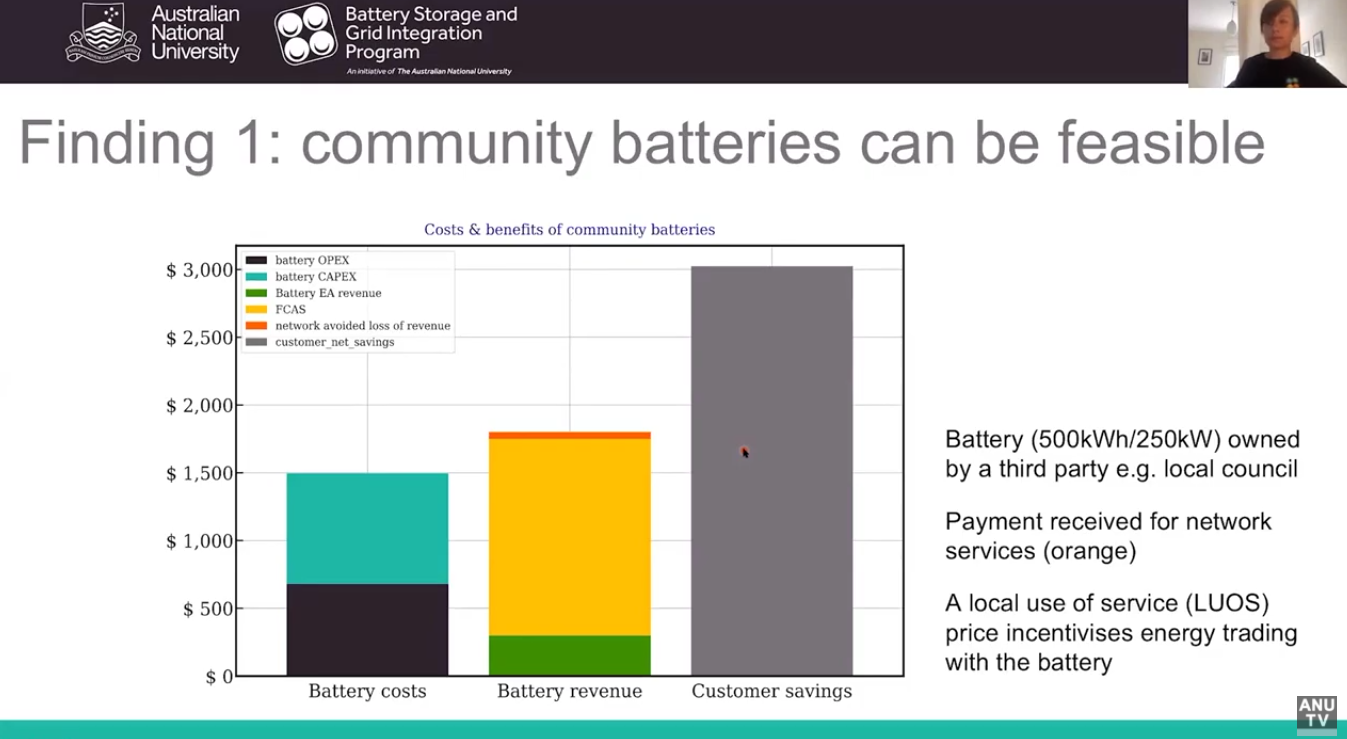Community Batteries Benefit The Grid More Claims Most Current Study
- The ACT government reckons there's a space in between the family battery and also grid-scale batteries: community batteries, either owned by or at the very least offering the needs of collectives of homes.
In the case of the ACT, the new 700-home growth of Jacka is developed to have photovoltaic panels on every home, so the federal government and Evoenergy are partnering with the Australian National University to see whether a community battery would certainly fit the advancement.
In a streamed seminar last week, the Australian National University's Power Conversations heard from scientists Dr Marnie Shaw (of the ANU Battery Storage as well as Grid Integration program), and also sociologist Dr Hedda Ransan-Cooper (research study fellow in the Battery Storage and Grid Assimilation program), who talked about the challenges encountering community batteries in terms of market as well as community approval.
Community batteries (in scale, 10 to 100 times the dimension of the regular family battery) are being trialled in Western Australia-- with a Tesla unit currently trialling in the Perth suburban area of Ellenbrook as well as one more going to Kalgoorlie-Boulder amongst them. In the eastern states, NEM policy is the obstacle: Dr Shaw clarified while it's rational for a generator to have as well as run the battery, those organisations aren't enabled to trade straight with consumers.
So Dr Shaw's job focuses on what (if anything) needs to change to make it possible for community batteries on the eastern shore, and as part of that, her team modelled the stability of a 500kWh battery in the Jacka community.
Her team's two vital searchings for are that a community battery would certainly create consumer savings double the cost of the battery; which it would certainly sustain a lot more solar energy mounted on homes in the growth.

The money shot: Dr Marnie Shaw's research study shows community batteries are monetarily viable
As we know, house solar electricity exports are ending up being a frustration for grid operators. The sector has just recently recommended technological standards absolutely free information from behind the meter to make sure that exports are much more manageable, as well as in 2015 we heard SA Power was try out dynamic export limits to attempt to avoid zero-rating houses with solar power systems.
Dr Shaw told the seminar house solar panels are already helping address grid issues, by decreasing exports by around 25%, however community batteries reduce exports by around 50%.
The ACT Suburban Land Company's Rob Thorman emphasised the relevance of managing exports: Jacka's 700 houses will, if unmanaged, certainly press sufficient electricity into the grid to cause disruption.
Resolving The "Individuals Issue"
So, while the community battery is practically as well as financially possible, it would certainly need an answer to the regulatory concern-- that best to possess the battery?
That's where Dr Ransan-Cooper's work as a sociologist can be found in. There are plenty of options to the grid operator having the community battery (the state government, the local council, or the community, for example)-- the question is which model is most likely to be attractive to the community the battery offers.
In her studies and also focus group job, Dr Ransan-Cooper stated energy professionals are clear that community batteries use a:
“huge range of benefits”, including “stabilising the grid, avoiding grid upgrades, and building trust in the NEM”.
It's at the community level that the concept needs to be "sold", because it's a strange principle to the ordinary householder.
“To be successful, community storage would have to either fit with the existing electricity system or if it can’t, it’s got to stretch or transform it in some way,” Dr Ransan-Cooper told the seminar.
Dr Ransan-Cooper claimed among one of the most vital facets of the community battery is that it aids overcome one of the thorniest renewable resource concerns-- equity. Too many houses are left out from the family renewables revolution, either due to the fact that they can not pay for home PV, or since they're occupants or house proprietors. Having the ability to take electricity from a community battery allows those teams participate in the globe of household renewables.
“Local storage could fit with pretty minimal to no regulatory changes – but community concerns about the nature of the electricity systems mean there is the possibility for this to be more disruptive,” she said.
The ANU group's research with householders discovered people are extra comfy the closer to "home" the battery is owned due to the fact that they like the concept of repossessing much more neighborhood control of the administration of their power system (rather like the by-now-ancient model, in which city government built and also had power generation).
Dr Ransan-Cooper stated having the batteries owned as well as run at near the regional degree acknowledges that electricity is:
"a social good, not necessarily just an individual good".
As well as community-level possession of the battery maintains money closer to the community, she included.
Also read

